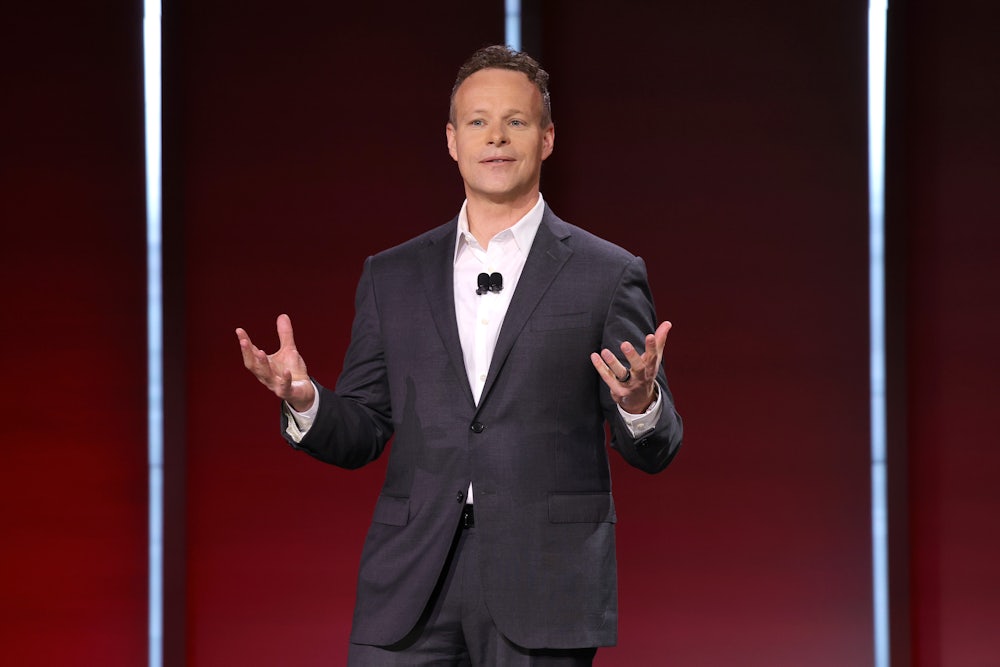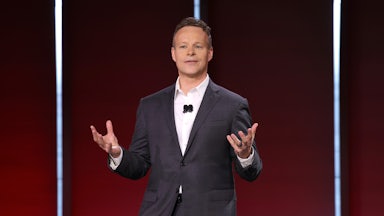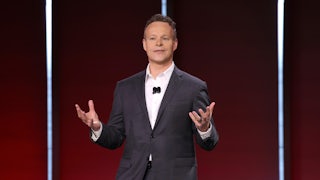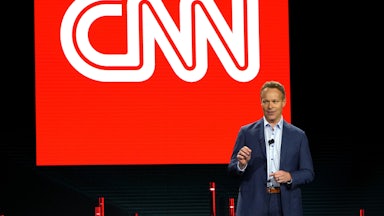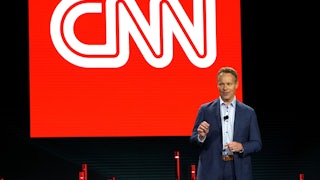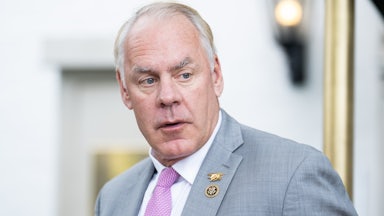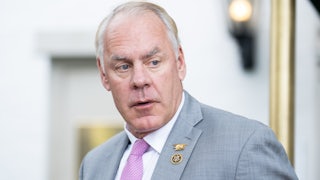The nicest thing you can say about Chris Licht’s short, disastrous time at CNN is that he was unlucky. Some of what happened was beyond his control—maybe much of what happened. Licht took the reins at the cable news network last May at a moment when interest in the news was at a nadir. After the sugar rush of the Trump era—a period that was very, very good for business for most in the media, particularly in cable news—everything came crashing down. Viewers, having white-knuckled it for years, wanted a break. Things were still crazy, but they had also sort of gotten back to normal—at the very least, there wasn’t the overriding sense that tuning out, even for a minute or two, let alone a few hours, could mean missing moments of world historical importance (or stupidity).
Still, when Licht took over, there was a sense that was about to change. The midterm elections were around the corner. Then the 2024 Republican primary, then the presidential election—and with both, the return of Donald Trump—and you get the drift. Licht had time, though not a lot of it, to make changes that he and his minders thought would improve the network’s situation; but its post-Trump slump was also hardly unique. And over his 13 months at the helm, there hasn’t been a sense of voters revving up for the presidential election—on the contrary, everyone still seems understandably sick of politics.
Licht’s timing was bad in more ways than one. He was brought on by David Zaslav, who took CNN over when the megalith WarnerBrothers Discovery was created in April 2022. Zaslav needed to cut costs—really cut costs, as in billions—and he made Licht his man on the inside, replacing the popular (at least internally) Jeff Zucker. This is more or less where Licht’s bad luck ends. Licht eagerly took on this assignment. And, at nearly every juncture, he did the worst job imaginable.
Zaslav wanted a new, cheaper CNN. He wanted a network that was more attuned to conservative views. Most of all, he wanted one that could woo back Republicans who had grown disaffected during the Trump era. Licht happily set about getting all of this. He laid off hundreds. He axed popular anchors who displeased Republicans, particularly Donald Trump. He organized a disastrous town hall with the former president that was supposed to be Licht’s crowning accomplishment, proof that the network was back in the center, conclusive evidence that viewers of all stripes could trust it again. Instead, Trump made a mockery of him, lying constantly and berating moderator Kaitlin Collins. To be fair, almost anyone could have seen it coming. Everyone, it seems, but Chris Licht and David Zaslav.
The tricky aspect of figuring out the meaning of Licht’s reign at CNN is determining where his influence stops and Zaslav’s begins. Licht, to be fair, made a lot of mistakes. He quickly alienated the newsroom, resembling a fitness-obsessed Damned United–era Brian Clough. His disdain for the work his employees did was apparent, but even worse was his disinterest in it. He and Zaslav adopted the right wing’s argument about the network, that it had become too far left, too shrill, above all too anti-Trump. Licht and Zaslav never thought to consider if any of that was true, they just simply bought the right-wing argument hook, line, and sinker. (There is, to be fair, much to criticize about CNN’s coverage during the Trump era, but its big problem was not the fact that it did not entertain MAGA views with enough frequency or respect.)
Oh, also Licht agreed to a 15,000-word Atlantic profile; reporter Tim Alberta was given unfettered access for months to understand his deepest principles and goals, as well as his day-to-day existence. The conclusion of this profile, to sum up, was that Licht is a dipshit. His firing would have happened anyway, but Alberta’s piece sped it along.
Licht claimed that he was trying to bring more sobriety to CNN, to make it a place where people could genuinely trust the news. He had, to be fair, famously done a version of this at CBS This Morning, which he helped relaunch in 2016. But cable news is not a place for sober analysis. It is a place for yelling. It is a place for conflict. It is a space for entertainment. It is possible to do this while informing its audience—at least to a degree—but if Licht meant what he was saying when he said he wanted to make the network more serious, he was doomed from the start. It may be more accurate to say that he and Zaslav hoped to make it a space in “the middle” again—a place where the right and the left could have a home—but this too shows both to be wildly out of their depth. The post-Trump right is fundamentally incapable of acknowledging basic reality, which makes doing this kind of “both sides”–focused journalism impossible.
The problems facing CNN go far beyond Licht, and it’s unlikely that anyone could have solved them. Cord-cutting is a major problem. Revenues are declining as a result; the average age of most cable news show audiences is “legally dead.” The business decisions made by the people in charge of these networks regarding streaming—look no further than the disastrous CNN+—have been catastrophic and have made everything a thousand times worse. People are not coming back to cable. Cable news may never again have the influence it enjoyed during the Trump era, a strange blip during an otherwise long and slow decline.
But that is all far too kind to Chris Licht. He walked into CNN to fire people. He walked into CNN to make the network more appetizing to Donald Trump—and, to a lesser extent, his supporters. He walked in talking big about journalism and trust in media and then treated his staff with contempt. Yes, he failed at a job that was very difficult. But he also failed because he didn’t understand the business he was in.
